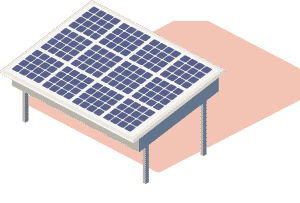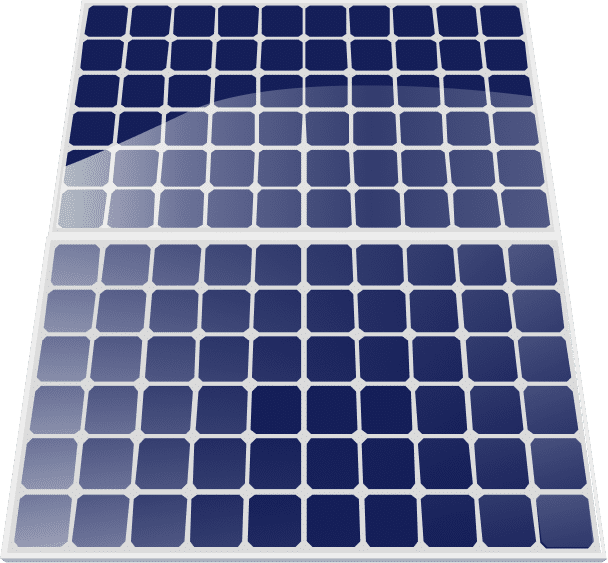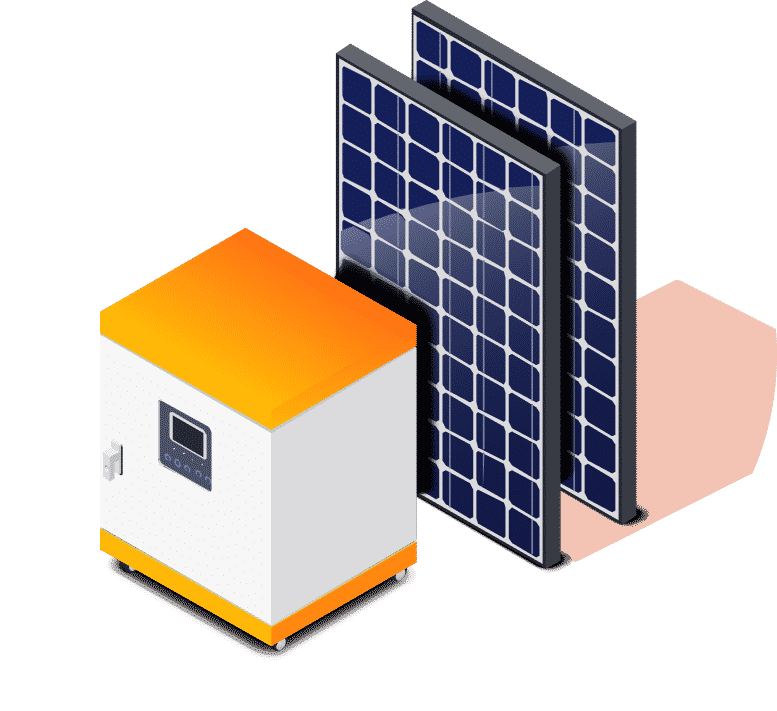Solar Panels Insurance Coverage

Solar Panels and Insurance Coverage
Solar panels are an eco-friendly option. However, the solar panels (also called photovoltaic or PV systems) will help you save money and improve the value of your home. Before you decide to cover your roof with solar panels, ensure that your homeowner’s insurance will cover them.
We’ll cover the insurance requirements for solar panels as well as the best options for using your home’s renewable energy.
Solar panels
Solar panels have been far expensive to use as sources of energy renewable for the average household for many years. A system for a residential home that costs $50,000 was unimaginable 10 years ago. This is a steep price tag, particularly for an investment that will require a long time to pay back.
As with all things technological advancement is making it easier to afford. The price of a house will vary based on a variety of variables. In the average, homeowners be paying between $15,000 to $25,000. Even though that’s a premium price, more and more people are investing in. In fact, 40% of all new US electricity generation capacity was generated through solar power during the first quarter of 2020.
Photovoltaic systems, or simply “solar panels”, are a great way to reduce reliance on nonrenewable energy sources for both the environment-conscious and the financially savvy.
While they may save you money in the long term however, solar panels may be costly upfront and are susceptible to damage by weather or other environmental factors. It is vital that homeowners who have solar panels can safeguard their investment.
How much do solar panels cost?
The price of solar panel installation will vary depending on the kind of solar panel you choose and where you live. It’s essential to compare prices before making a purchase. The company [xfield] estimates that solar panels{ will|| can} cost about $13,000, after the application of solar tax credits.
It is important to consider incentives when you compare solar panel costs. They can dramatically lower your expenditure. The federal government recently extended the investment tax credit (ITC) for renewable energy tax credits. You are able to deduct 26% of the cost of installing solar systems from federal tax in 2020 and 22% in 2021. There is no limit to the credit’s value. For more details on tax, read our blog on tax and home insurance deductions.
Local and state governments provide financial incentives such as cashback, exemptions from property taxes and fees, rebates, or fee waivers. To see which credits you might have the right to claim, visit for the Database of the State Incentives in the field of Energy and Renewables. You can also get an loan if the expense is too high or you don’t want a system.


What are the benefits that solar panels offer?
Solar panels offer many benefits. Solar panels not only cost you less in the long run however they also help reduce the carbon footprint of your home and enable you to receive solar credits from government agencies.
Another benefit to purchasing solar panels is the reduction of your dependence on other energy sources. You can avoid rising cost of utilities because of fluctuating natural gas, oil and coal prices through solar power. You can even sell extra energy to your utility provider in certain areas, which will allow you to make more money than the amount that you are saving.
The main benefit of solar panels is the ability to increase your home’s resale values. Based on the U.S. Department of Energy, a solar energy system can increase a home’s value by \$20 per \$1 of utility savings. The cost of installation is typically offset by the rise in home value. Solar homes tend to sell quicker, which will make it easier to save time and money when making your next move.
It is all dependent on the location you reside in. How long and how much will it take for your solar panels to pay for themselves, as well as the amount you save. Electricity costs can be as affordable as just eight cents for every Kilowatt hour (kWh) in certain states. In other states, it could cost more than 20 cents. If you live in an area in which electricity costs are high, solar panels can be more beneficial. This chart will help you determine the average price per kWh.
Think about all the improvements you have done to your house, including solar panels when determining what amount of coverage you require. Your insurance coverage should grow with the value of your house. Contact the agent at Shneyder Solar to learn more about the protection of your home’s extras. We’re here to help.
Is homeowners insurance covered for solar panels?
The majority of homeowners insurance companies view rooftop-mounted solar panel permanent additions for your house. This means that the majority of homeowners policies will cover solar panels, and you don’t need additional insurance to cover solar panels. It is essential to study your options before you install solar panels in order to ensure there are no gaps in your insurance coverage.
Find out whether your insurance provider covers the solar panel system, contact them. It is possible to inquire with your insurance provider regarding any restrictions or risks not covered. This will help you to understand your current policy and determine the most appropriate method of proceeding.
There are other aspects you should consider before installing solar panels. Before you make a big investment in solar panel systems, you must consider other aspects that are not insurance policies.
Homeowners Association (HOA) rules. Some laws of Texas limit the restrictions homeowners associations may impose regarding solar panels’ installation. Your HOA cannot forbid you to install them. They are allowed to create guidelines regarding the installation. To ensure you are clear about what is allowed discuss the matter with your HOA/POA prior to beginning to proceed in this endeavor.
Local laws and regulations. While some solar panels are designed to power homes , some may connect to the grid. This permits homeowners to feed surplus electricity back into the grid and get credits for the excess. There are rules to be followed when making any improvements or modifications to a grid. Some cities, for instance requires that electricians be licensed to put in the equipment.

Do I require separate insurance for solar panels?
You may need to add on to your insurance or in some cases you will need a separate insurance policy for your solar panel. You might require additional protection if your solar panel system is situated in your backyard and not placed on your roof. Carports for solar panels are another{ example of a|| instance of a} freestanding structure that may require a separate rider policy. To determine the best option you should have an excellent idea to consult with an insurance representative.
What is the price of the solar panel's insurance?
Rooftop PV systems are typically considered permanent installations, which means the cost of insuring them can be added to your home insurance. The total amount of coverage you have does not be affected by the change. It is important to make sure that the coverage limit is enough to cover the cost of your home and the cost of a new solar system in case of serious destruction. The installation of solar panels is costly, and you might need to include the cost of replacement.
Based on the Solar Energy Industries Association, the average cost of a residential solar panel system is currently $18,000. Certain systems can cost as high as $30,000. Even with these dramatic price reductions, a solar panel system is still a substantial investment that can affect your insurance rates. You can increase your coverage limits for a low premium.
What should I cover for a lease solar system?
Another option is offered to those who are looking to install solar panels, but do not have the finances. There are leasing options available from numerous companies that allow users to purchase a solar power system at a very low or zero upfront cost. The system doesn’t belong to you. This means that in most cases you don’t have to care for upkeep or take care of the insurance for the solar energy system. The leasing company that runs the system is responsible for this obligation. Although leasing will help you save money on energy, it won’t be as effective as owning a solar energy system.
Which states are the most suitable for solar panel installation?
It’s not a surprise that the states with the most sunlight are best for solar energy. [region], [region] and [region] are all possible locations to harness solar energy. Solar panels are becoming more common in all 50 [xfield_state-abbreviation]. Some of the biggest producers of solar power are not likely states, such as [region] and [region].
Important to remember that each state has its own regulations in place for incentives and regulations regarding solar energy. This means that benefits can be different according to where you live.
Considerations for solar panel insurance
Solar panels are made to be installed in areas where they are the most vulnerable and exposed to weather elements. This makes it more likely that solar panels are damaged, especially if they are located in areas that are prone to severe weather. Solar energy systems should be protected as with any other investment that is costly. It is possible to think about the possibility of a home insurance policy with lower costs if you are concerned about solar panel insurance’s possible additional costs.
Shneyder Solar will help you find the best homeowners policy. It compares rates from several top firms and helps narrow down your search.
Contact Shneyder Solar to discuss how you can get Solar Panels protection
Shneyder Solar can assist with buying and installing a solar energy system. Our solar panel specialists are licensed and insured to make sure that the panels are installed correctly on your home.
GET YOUR FREE PROPOSAL IN A FEW EASY STEPS
Fill out the form and our sales consultant will contact you! Once you’ve had your initial consultation, you’ll begin your solar journey.
